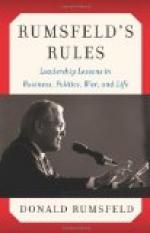Lord Methuen’s advance came to a pause after the battle of Modder River, now nine days ago. There appear to have been good reasons for the delay. First of all, it is necessary that when, or soon after, Kimberley is reached the railway to De Aar should be available both for the removal of non-combatants, and for the transport of provisions, ammunition and guns. This involves the repair in some way of the bridge at Modder River. Next, it was proved-by that battle, in which the Boer force was large enough to make the victory most difficult, and by the arrival after the battle of fresh Boer forces, that Lord Methuen’s force was not strong enough for its work. If a whole day and heavy loss were needed to bring about the retreat of eleven thousand Boers from a prepared position it might be impracticable for Lord Methuen without more force to drive away fifteen or eighteen thousand Boers from a prepared position at Spytfontein, and the possibility of such a body of Boers being at that point had to be reckoned with. Lord Methuen needed more infantry, more artillery, and more cavalry. Of none of the three arms had General Forestier-Walker any abundant supply. If he has sent on, besides a cavalry regiment, the whole of the Highland brigade and three batteries of artillery, Lord Methuen would be none too strong. It is essential that, having started, he should defeat the Boers again and reach Kimberley, for a failure would be a disaster. I have great confidence in Lord Methuen and his troops; what determination and bravery can do they will accomplish, and I feel pretty sure that in a day or two we shall have news of another victory and of the relief of Kimberley. But why has the paramount power in South Africa sent a fine general and splendid troops to face heavy odds and to run the risk of finding themselves over-tasked by superior numbers?
If we put the most liberal construction on General Walker’s account of what he has done to reinforce Lord Methueh there are now fifteen battalions, five batteries, and two cavalry regiments north of De Aar. To protect the great depot of military stores at De Aar and the railway from that point to the Cape a considerable force is needed, and to stem the tide of Boer invasion and Dutch disaffection, which has spread from the Orange River to Tarkastad and Dordrecht, from Colesberg to Barkly East, a further large force is badly wanted. But in the whole of Cape Colony south of the Orange River there appear to be only nine battalions, perhaps a couple of regiments of cavalry, and on the most favourable assumption five batteries. Of these battalions Sir William Gatacre has half-a-dozen on the lines running north from Algoa Bay and East London, the greater part at Putters Kraal, north of Queenstown. This is a tiny force with which to clear an invaded and disaffected area of twelve thousand square miles. We may be perfectly certain that Sir William Gatacre will do the best that can be done with his force, and if that should be more than his numbers alone would lead us to expect the reason will be that Lord Methuen’s victories will have made the Free State Boers uneasy about their road home. A fresh victory near Kimberley and the effectual relief of that place will lighten Sir William Gatacre’s load.




